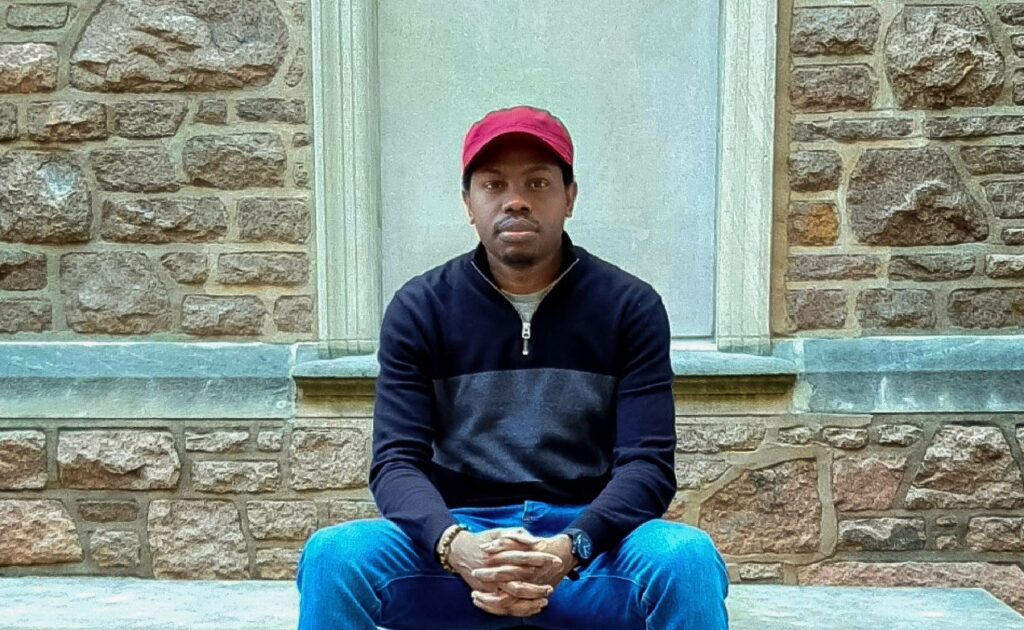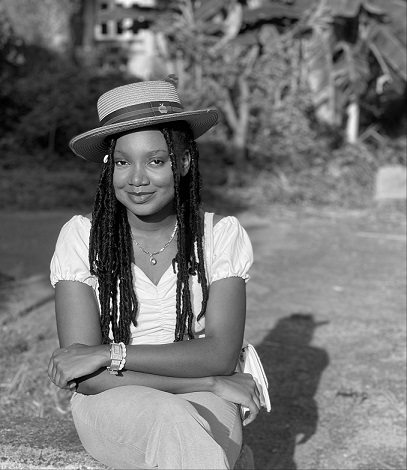On October 3, 2016, a group of thirty-two rubber dinghies, five boats, and two rafts left Libya and sailed for Italy, the hopes of their passengers resting on the mercy of the Mediterranean Sea. There were around 6,055 people on that trip, all of them fleeing their African and Middle Eastern countries. A few of the young African men among them may have spent months, even years, playing football in Agadez, a small city, on the southern edge of the Sahara Desert, which nevertheless is the largest city in Niger Republic. They may have been among those earning stipends, from which they paid their coaches-cum-smugglers $500 each to get them to Europe, where they could pursue dreams of professional football. Now, along with thousands of other strangers with different dreams — a fraction of the 186,000 who made the journey that year and the 2.5 million who have since 1970 — they were in Libya, the crucial point of departure. Having chosen to leave and live, their only barrier was a sea deemed by the United Nations to be the most dangerous migration route in the world, taking some 29,000 people since 2014.
Thirty miles into the waters, their boats broke down. Fuel ran low and some began to sink. One boat with 160 people capsized off the coast of Garabulli. Choice became so dismal a thing for others that some people were thrown overboard. Those of them who clung to jerry cans of fuel to stay afloat were badly scarred by the fuel and seawater mixture. Their salvation was the Italian coastguard.
In his poem “Nightshift at the Coast,” in which an Italian coastguard finds the lifeless body of a Nigerian boy, ’Gbenga Adeoba fictionalizes a young man who might have been on any of the countless boats departing Libya. He opens a portal into the boy’s past through a photograph in his inner pocket: “he, barefooted on a football field/ in the jersey of an Italian team.”
Living in Nigeria at the time, Adeoba understood what the people in the news were fleeing from. In his treatment of the tragedy, it is the ironies that bear a subtle ache ― the paradoxes of migration and exile, the economic and cultural complexities pervading the global landscape all coming to fore. The sea, for the imagined young man, is an intersection of opposites, at once charming and ruinous, a terrain where mobility is layered with memory and identity, with desperation, loss, and survival. Adeoba set a juxtaposition: just beyond the serene beauty of the night coasts is the harsh reality of the migrant crisis.

For years, since his undergraduate days at the University of Ibadan, he had been thinking of dreams and departures, not just for Nigerians but for every other national fleeing on the Mediterranean.
“Are you familiar with the story of Alan Kurdi?” he asked me, about the two-year-old Syrian boy who drowned in the Mediterranean alongside his mother and brother. He wrote a poem mourning him and called it “All the Little Lights Going Out”:
beyond being Alan, evacuee, scion of Kurdi,
a lost song shrinking the heart at each retelling.
He approached the loss as one who was a witness, one who knew the boy “before home became the mouth of a shark.” That empathy is how he taps into the collective hurt and psychic pain of refugees who knew loss so palpable that memory for them was as stiff and unyielding as “a cargo floating on seawater.”
“Nightshift at the Coast” and “All the Little Lights Going Out” appear in Exodus, his debut poetry collection, which won the Sillerman First Book Prize for African Poets in 2019. The interrogating verses range from the Transatlantic Slave Trade to contemporary migration spooling from and into economic and political crises, from Baga to Bangladesh, Nigeria to Italy, Benin to Haiti, the historical sequence of tragedy reaffirming itself each time. The Nigerian poet Peter Akinlabi described the book as carrying “clairvoyant collocations” recalling “the inhumanities of the past as well as the inequalities of the present.” Between migration, displacement, and exile, they unfold as responses to a fragmented history waiting to be re-woven back into place.
Adeoba comes from a crossroads of histories. He was born in 1993, in the quiet city of Akure, southwestern Nigeria. Only days later, on June 24, the military regime of General Sani Abacha annulled the presidential election, in which M.K.O. Abiola won the popular vote, plunging the country into unrest. He grew up on the same street where, a decade before, the late Chief Olaiya Fagbamigbe, owner of Fagbamigbe Publishers and member of the House of Representatives, was burned alive in post-election riots.
Adeoba’s father owned a collection of old books, newspapers, and magazines, and he read these alongside the stacks left behind by a traveling neighbor. It was in those pages that he discovered the poetry of Niyi Osundare. He took to the form and began listening to the Yoruba poets on the radio, especially Chief Túbọ̀sún Oládàpọ̀, and nurturing an interest in multilingualism. In an old Newswatch magazine issue from the ‘80s, he learned about the Ghana Must Go protests, when Nigeria expelled Ghanaians. It substantiated his first real interest in migration.
In the years that followed, as he studied Communication and Language Arts at the University of Ibadan, he developed studious interest in poetry. He attended a workshop and learned from the poet Jumoke Verissimo. Soon he was reading up on fellow young poets, including Ibukun Adeeko and Samuel Ugbechie, and later joined 20.35 Africa, the influential anthology series founded by the poet Ebenezer Agu, as an editor.
“I read across generations,” he told me. “Working in the context of 20.35 Africa was an opportunity to see the kinds of things writers of our generation were doing.”
By the time he began to get published in notable magazines — POETRY, Oxford Poetry, African American Review, and Prairie Schooner — he was deep into work on Exodus.
“My first real interest in migration came from those old newspapers I read growing up,” he said, but “some of the poems I was responding to were by Peter Akinlabi. He has a poem, ‘Ouidah,’ and another one about the last enslaved person in the US, ‘The Last Winter of Pa Cudjo Lewis.’”
Among the poems that came out of that intertextual dialogue are “Middle Passage” and “Eclipse.” In the former, Adeoba transports us to a 1761 ship crossing the Middle Passage, “where the sail seemed to have given in/ to the wind’s insistence on a wreck.” In “Eclipse,” it is the uncharted grief of the enslaved at the Dahomeyan slave port, the cost of their silence, knowing “their dreams, too,/ would ebb into a patina speaking only in whispers,/ the language of a body speaking to itself.”
In 2018, the year he was shortlisted for the Brunel International African Poetry Prize (now the Evaristo Prize for African Poetry), Adeoba left Nigeria, but on much better terms than his poetry subjects. He went to the United States, for an MFA at the Iowa Writers’ Workshop, and then to the United Kingdom, in 2020, for another master’s in Refugee and Forced Migration Studies at Oxford. By 2021, he was back in America, where he is now doing a PhD in Comparative Literature at Washington University in St. Louis.
“The subjects you study signal your curiosities,” he said. “So there may be overlaps between your creative and scholarly interests. Prior to my time in Iowa, I hadn’t come across anyone with a refugee experience — my poetry was mostly the work of imagination, if you like.”
In Iowa City, he taught English as a Second Language in a refugee center, and led poetry workshops for refugees and asylum seekers, to help them express their experiences.
Perhaps it is this inclination towards teaching that allows for the control and composure in Exodus. He writes not as one who is inexperienced on his subject but, as Paula Willie-Okafor notes in her review for Open Country Mag, as “a detached storyteller with the simple yet daring assignment of pointing ‘humanity to the loss of itself.’” He crafts vivid images with detail and comprehension, ensuring a vulnerability and delicate balance between empathy and avoiding polemics. The textures of his verses, refined, carry urgency, the collective human experience of loss and the burden of history.
“Not to romanticize poetry,” he said, “but I think that we are caught in history one way or the other. Whether you’re a writer or you’re not, we are all responding to history.”
Something else he is responding to: the connection of the sea. He had always threaded the motif of water in his work, going back to Here Is Water, his 2019 chapbook from New-Generation African Poets. He shows the sea as woven with life and history, how much of it births experience. It led to his interest in Derek Walcott, a poet who interrogates the sea as one would an archeological site. Walcott’s “The Sea Is History” is the epigraph of Exodus.
“It was the sea that really got me to make a connection,” he said in his calm and collected manner, sustained throughout our Zoom call, “between contemporary issues of migration — i.e. free or forced, like people trying to go through the deserts through Libya to Europe — and Transatlantic Slavery. What you find on both sides is its continued presence and significant role.”
At the very beginning of Exodus, in a poem called “Seafarers,” he expands that continued presence into a haunting reminder. The persona laments in collective agreement:
what binds us,
in this boat, is a known fear,
a kinship of likely loss.
Anyone, it suggests:
could become a band of unnamed migrants
found floating on the face of the sea. ♦
“’Gbenga Adeoba Imagines Dreams for the Displaced” appears in the forthcoming second issue of The Next Generation Series, an Open Country Mag project profiling rising African writers and curators, edited by Otosirieze. The groundbreaking first issue, featuring 16 voices from nine countries, was released in April 2022. The second will be published in 2024.
If you love what you just read, please consider making a PayPal donation to enable us to publish more like it.
More Stories from Open Country Mag‘s The Next Generation Series
— The Overlapping Realisms of Eloghosa Osunde
— DK Nnuro Finds His Answers
— How Romeo Oriogun Wrested Poetry from Pain
— Suyi Davies Okungbowa Knows What It Takes
— Why Tobi Eyinade Built Rovingheights, Nigeria’s Biggest Bookstore
— Remy Ngamije on Doek! and the New Age of Namibian Literature
— Ebenezer Agu on 20.35 Africa and Curating New Poetry
— In Writing Cameroonian American Experiences, Nana Nkweti Crosses Genres
— Oghenechovwe Donald Ekpeki‘s Curation of African Speculative Fiction
— Logan February on Their Becoming
— The Cheeky Natives Is Letlhogonolo Mogkoroane and Alma-Nalisha Cele‘s Archive of Intentionality
— Cheswayo Mphanza on Intertextual Poetry and Zambia’s Moment
— The Seminal Breakout of Gbenga Adesina
— Keletso Mopai Owns Her Story and Her Voice
— Troy Onyango on Lolwe and Literary Magazine Publishing in Africa
— At Africa in Dialogue, Gaamangwe Joy Mogami Lures Out Storytelling Truths
— Nnamdi Ehirim Writes from Music
— Khadija Abdalla Bajaber on Fantasy and the Character of Kenyan Writing





